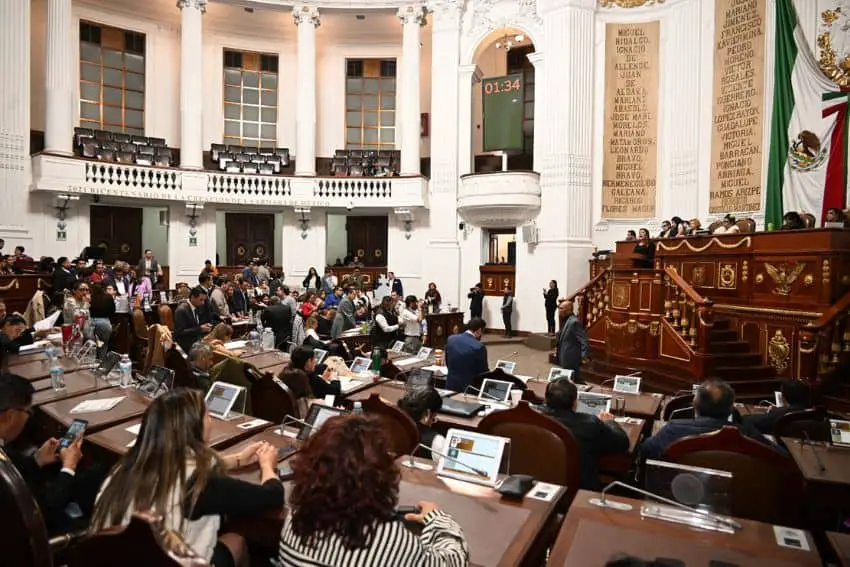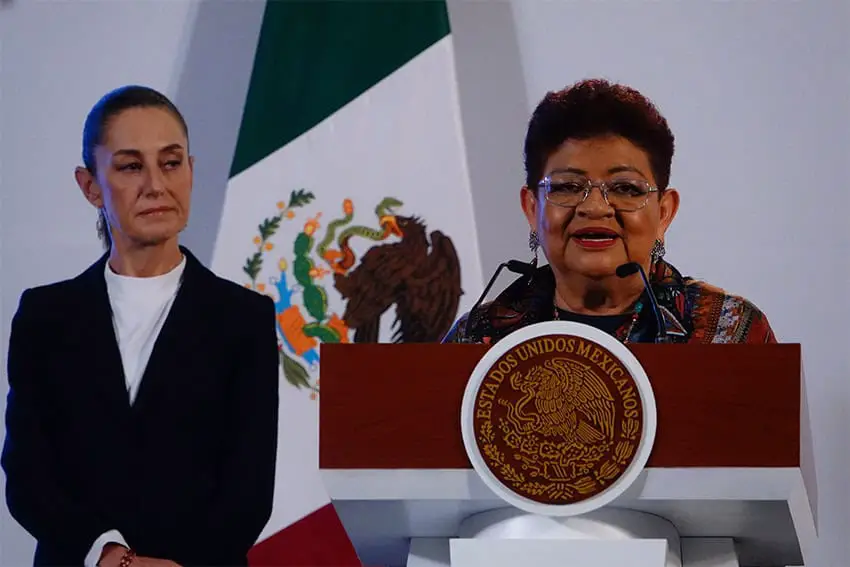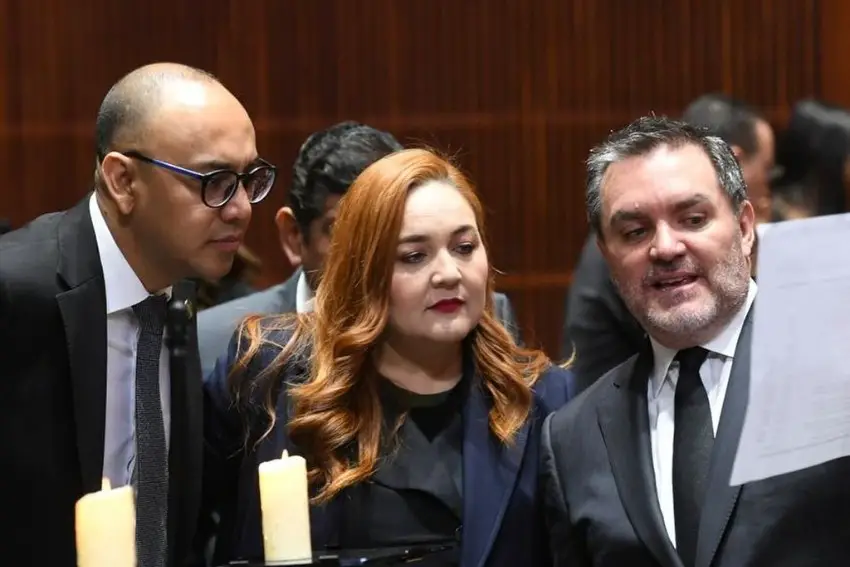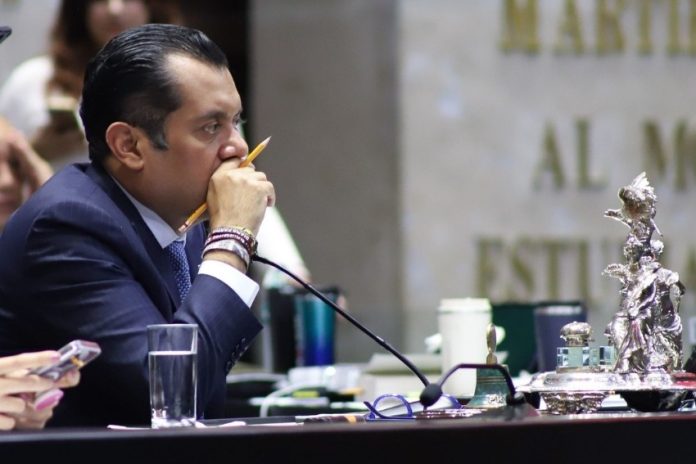The lower house of Congress approved a bill on Wednesday that will prevent legal challenges against constitutional reforms, such as the recently enacted judicial reform.
The so-called “constitutional supremacy” bill was backed by the ruling Morena party and its allies, which have a supermajority in the Chamber of Deputies that allow them to approve constitutional reform proposals without the support of opposition lawmakers.

A total of 340 deputies voted in favor of the bill, 133 opposed it and there was one abstention. The lower house’s approval of the reform came six days after the Senate passed it.
A majority of Mexico’s 32 state legislatures – most of which are controlled by Morena – have already ratified the reform, meaning that President Claudia Sheinbaum can sign it into law.
The bill – formulated after a federal judge handed down a controversial ruling against the judicial reform – makes constitutional amendments “unchallengeable” in a legal sense.
Once the reform is promulgated, not even the Supreme Court will be able to review or make rulings on constitutional amendments.
Congress’ approval of the bill came just five days before the Supreme Court is scheduled to consider a proposal to strike down the part of the judicial reform that allows all judges in Mexico to be directly elected by citizens. Under the proposal of Justice Juan Luis González Alcántara Carrancá, only Supreme Court justices would be elected and all other judges would continue to be appointed.
If the reform is promulgated before next Tuesday – as appears almost certain – the Supreme Court won’t be able to review the judicial reform as scheduled.

‘The Supreme Court cannot modify the constitutional text’
Morena Deputy Leonel Godoy, president of the lower house’s Constitutional Points Committee, said during Wednesday’s congressional debate that the reform’s aim is to provide certainty and clarity regarding the inadmissibility of legal challenges against constitutional reforms.
The Supreme Court – the country’s ultimate legal authority – “cannot modify the constitutional text,” he said.
“There is no provision in the text that allows that to happen,” Godoy said.
President Sheinbaum made similar remarks on Tuesday.
“The Supreme Court cannot be a legislator,” she said.
The Supreme Court doesn’t have the authority to legislate or to strike down a constitutional reform that “followed all the [legislative] processes that the constitution establishes,” Sheinbaum said.
Godoy said that Justice González’s proposal to strike down an essential part of the judicial reform was an attempt to “arrogate,” or usurp, “legislative powers.”
Morena Deputy Olga Sánchez, a former Supreme Court justice and interior minister, said that the reform would “rescue” the “sovereign power” of the Congress to legislate without having its constitutional amendments subject to legal review.
The reform “supports the capacity of the people to define their future” and is in no way “contrary to the defense and promotion of human rights,” she said.

At her morning press conference on Wednesday, Sheinbaum said that the “majority of Mexicans agree with electing judges, magistrates and Supreme Court justices.”
“If they didn’t they wouldn’t have voted as they voted,” she said, referring to the June 2 elections at which she and Morena won comprehensive victories.
The first judicial elections are scheduled to be held on June 1, 2025.
The president, like her predecessor Andrés Manuel López Obrador, argues that a judicial overhaul is necessary to ensure that Mexico’s courts are free of corruption and serve the interests of the majority of Mexican people, rather than an elite minority.
Critics of the reform argue that the direct election of judges will erode the independence of the Mexican judiciary and thus weaken or remove a vital check on government power.
PAN accuses Morena of ‘killing’ the judicial power, democracy and the rule of law

National Action Party (PAN) deputies dressed in black, clutched candles and held up mock tombstones inside the Chamber of Deputies to demonstrate their opposition to the “constitutional supremacy” reform.
In a somewhat theatrical display, they “mourned” the “deaths” of the judicial power, democracy, autonomous organizations and the rule of law.
“Rest in peace judicial power. It died a victim of the authoritarianism of Morena,” said the epitaph on one of the mock tombstones.
“Democracy,” “autonomous organizations” and “rule of law” replaced “judicial power” on the other tombstones.
Former president López Obrador submitted a raft of constitutional reform proposals to Congress in February, including one aimed at disbanding autonomous government agencies.
The “constitutional supremacy” reform will ensure that none of the reforms already passed by the new Congress, as well as those that will likely be approved soon, can be challenged.
PAN Deputy Annia Gómez asserted that Morena’s intention is to “end the rights of citizens by mutilating the Constitution,” copies of which she said should be placed on Day of the Dead altars.
“It is a historical regression that will take years to reverse and marks a before and after in the real balance of powers,” she said during a testy debate in the Chamber of Deputies.
MC, PRI parties also slam the reform
Before Wednesday’s vote took place, Citizens Movement (MC) Deputy Sergio Gil asserted that if the “constitutional supremacy” bill is approved, “constitutional reforms could even allow the reelection of a president or the establishment of a centralist government.”
There would be “no legal means to reverse them,” the MC lawmaker said.
The Mexican Constitution states that a president can only serve a single six-year term.
Institutional Revolutionary Party (PRI) Deputy César Domínguez asserted that Morena, in putting forward and supporting the reform, is going even further than former president and Porfirio Díaz – a virtual dictator for more than three decades – “dared” to go.
The PRI lawmaker said the reform was aimed at “perpetuating” Morena in power and “sending the institutions [of Mexico] to hell.”
With reports from El Universal, La Jornada, Reuters and Reforma
